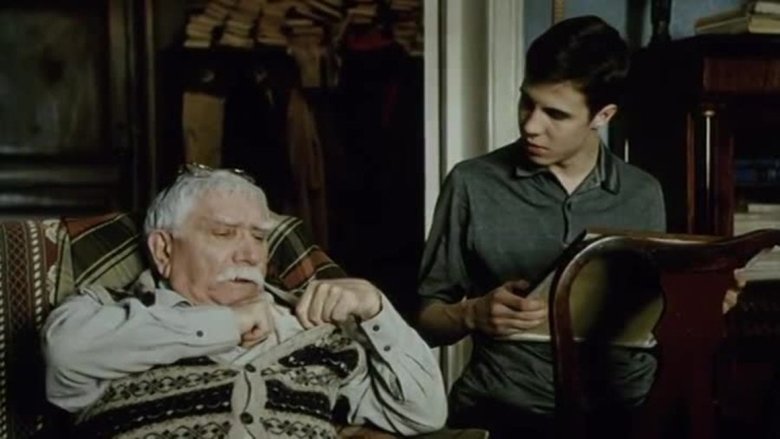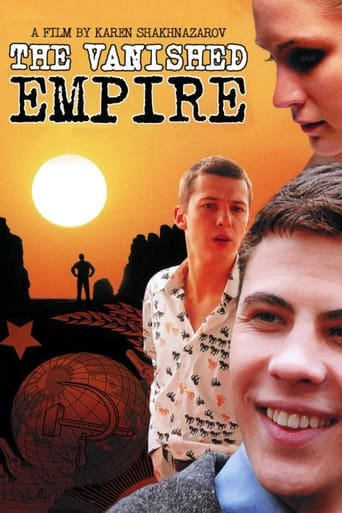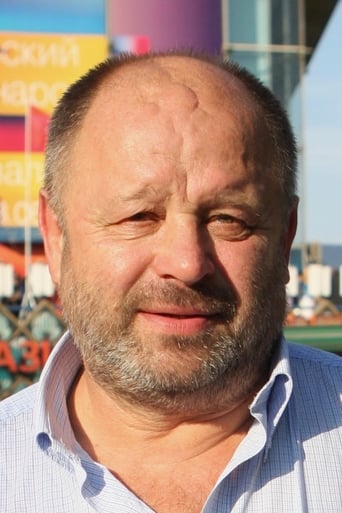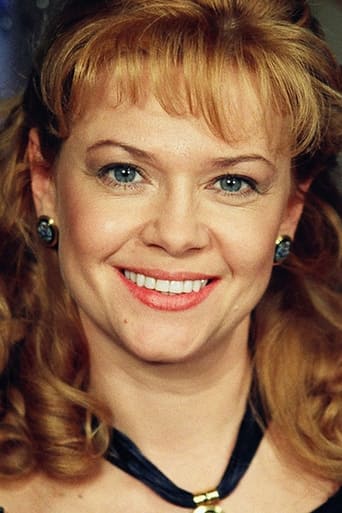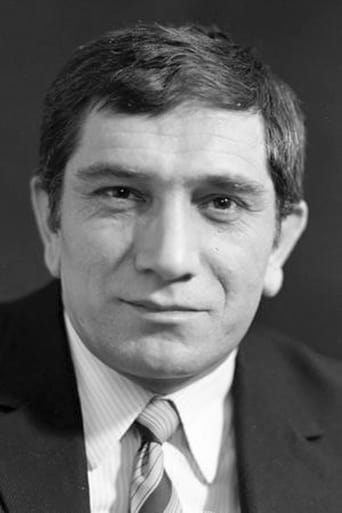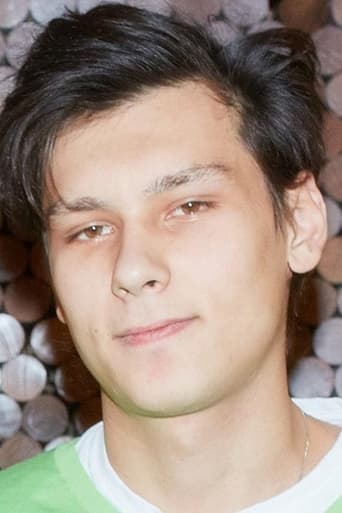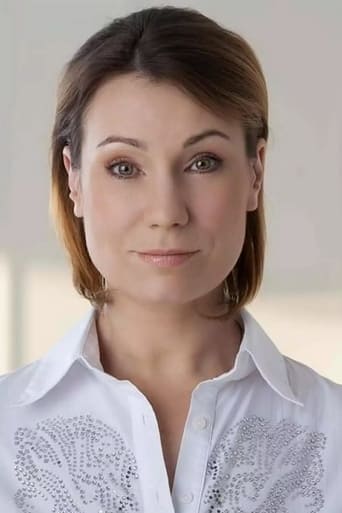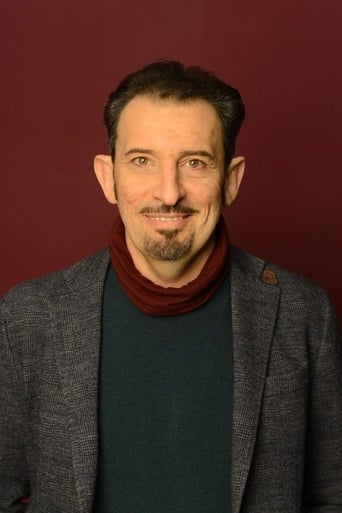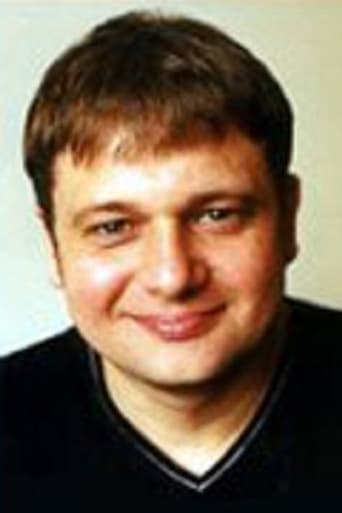This story take place in Moscow during the 1970s and unfolds around the love triangle between two young men and a girl who study at the same university. They argue, make up, and face their first disappointments and victories. While busy with personal lives and loves, they miss foreseeing that the country in which they were born and live will soon disappear from the map.
You May Also Like
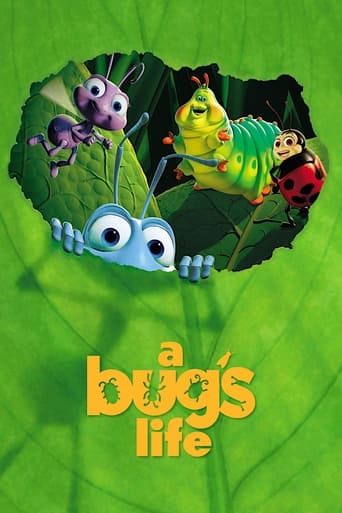
Reviews
Fantastic!
The film creates a perfect balance between action and depth of basic needs, in the midst of an infertile atmosphere.
The thing I enjoyed most about the film is the fact that it doesn't shy away from being a super-sized-cliche;
This is one of the best movies I’ve seen in a very long time. You have to go and see this on the big screen.
like many Russian films, Vanished Empire could be understand especially by the public from the East. for the small detail, for the life style , for the relations between characters, for a special form of poetry. in same measure, it is an universal story of a teenager. and the only ingredient who does difference by many other films about same theme is the atmosphere of Brezhnev era. the mixture of nostalgia and emotions, the adventures of a teenager and his desires, fragments of the universe of his family members, the way to discover his roots, the love story who seems be a misunderstood, the final dialogue and the beautiful performance of Aleksandr Lyapin - who not represents a surprise - are tools for define a time more than a biography. nothing new. only the flavor of a period . honest presented, realistic reproduced at the level of an age of searches. humor and crisis of an empire. and few scenes who are potential of gem.
Karen Shakhnazarov's films are all, in a sense, "period pieces." They find a solid place in international film festival culture without ever quite winning the prize. "Vanished Empire" had a particularly personal ring for me, since I began my long-time study in and out of Soviet/Post-Soviet Russia in the period this film depicts (circa 1974), and had an uncomfortably eerie sense of deja-vu throughout the film. Searching for an American parallel, I came up with "American Graffiti," where Richard Dreyfus's character is caught between remaining in his Middle-American hometown or heading off to an Eastern college (as he does) and returning many years later to write about it.Shakhnazarov's film has a similarly autobiographical feel to it, although his young hero ends embracing, rather than rejecting, the culture from which he emerged: the Russian intelligentsia. The meticulous reproduction of the Soviet 1970's offers a vaguely satiric self- portrait, hinting at the educated class's role in preserving world culture and history while rejecting indoctrination into Soviet politics and values. Therefore, the young hero, Sergey's true love is not, as he believes, the "good girl," Lyuda, who prefers the ACTUAL recording of "Swan Lake" (a covert reference to the ballet's role in service to the state) contained in the black market record jacket of the Rolling Stone latest release to the Western contraband recording that Sergey has paid dearly for, expecting to win her affections. Sergey's instinctual pull towards rebellion keep him from romanic fulfillment, but bring him closer to his true self.Instead, Sergey comes to love and honor his dying mother, and follows his grandfather's advice by making a pilgrimage to the archaeological site that represented his family's life's work.In the ancient desert sands, Sergey finds the source of his earlier hallucinatory, drug-induced vision.Emblematic details (cars, records, ancient trinkets) speak to viewers with Shaknazarov's background. Reading them properly, however, requires something of the education Shaknazarov's hero gained in the intervening years between the "coming of age" story and the film's contemporary epilogue.
This is the kind of film which captures the spirit of the age, which gives us an excellent cast playing characters who are all too real, in their world, over 35 years ago. Everything that one could have heard about Leonid Brezhnev's Soviet Union can be found here. Compared to today, it was an era where life was simpler, yet offered far less opportunities than the West. Despite the differences, by the end of this film, it is very easy to relate to the characters, especially Sergei Narbakov, the protagonist, and his friend, Stepan Molodtsov. Our humanity is a shared experience.The outstanding performance by the Armenian actor, Armen Dzhigarkhanyan, must not be overlooked, either. Alternating between old wisdom and very dry humor, he stands out as Sergei's grandfather. I have already recommended this film to friends who share with me an equal curiosity about the USSR, an acronym now consigned to history books.
I am Portuguese so, despite being born in the 80', i know a few things about a country trying to overcome its own memory. For those who don't know, Portugal was the late perpetrator in Europe of a fascist concept of "empire", a retro idea that stuck cultural life and true evolution for decades in some countries. It finished for us in the mid 70', but dealing with such a radical change of collective definition is something that drags to these days, watered by an upgrade in the Portuguese general living conditions, but still there.Now i think the Soviet experiment was probably more radical and fundamentalist to its populations than the Latin European fascisms. And it lasted longer. So, dealing with the radical shift towards a forced "western democracy" approach is probably a painful process for the ex soviet territories, mostly the russians. That's the frame where i place this specific picture. I watched it as an exorcism of past phantoms, but also a blinking melancholic eye to those days.The facts in the story, which is casual (it is here as a 'typical' repetitive case, in those days) all speak against what was happening in that regime in that context, but yet it avoids moralizing. No one is judged (unlike, for example, in "The lives of the others") and no one is innocent. It's a kind of approach that assumes that we must feel what was going on regardless of the upper political or power contexts that forged what we see. I accept that vision, i enjoyed it. The cinematic options here were fully coherent to what we saw, and from time to time i saw Tarkovsky here, who has much to do with how cinema bends memory. Nice to remember a social context, a certain youth i never got to know, and a certain kind of cinema that is sweet and sometimes (not this case) deep and life-altering.My opinion: 3/5 FantasPorto http://www.7eyes.wordpress.com
Top Streaming Movies











